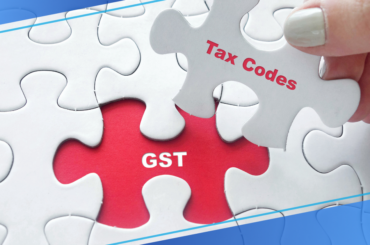SME loans, also known as small and medium-sized enterprise loans, are financial products designed to provide funding and support to small and medium-sized businesses. These loans cater specifically to the unique needs and requirements of smaller businesses, which often face challenges in accessing traditional financing options.
The SME sector in India has made a substantial contribution to the country’s GDP, driven by the significant number of job opportunities it creates. In FY 2022, approximately 93,94,478 workers were employed in these sectors. However, despite its undeniable significance, the sector faces challenges in accessing formal credit.
According to the BLinC Invest MSME Lending Report 2022, financial institutions in India are only able to fulfil 15% of the total credit requirements of the sector.
As the world’s fastest-growing economy, it is crucial for India to take prompt action in eliminating these obstacles. Fortunately, emerging trends and fintech solutions hold the promise of ushering in a new era of transformative change.
Why are the current lending protocols challenging for SMEs?
In India, a staggering 99.7% of small businesses operate within the unorganised sector, with around two-thirds of them not registered under government authorities. This poses a significant challenge for these businesses, as they are automatically rendered ineligible to apply for SME loans from traditional financial institutions and non-banking financial companies (NBFCs).
Consequently, the credit gap in the micro, small, and medium enterprises (MSME) industry has skyrocketed to an alarming Rs. 25 trillion in 2022.
The absence of collateral or assets further compounds the difficulty for small businesses in obtaining formal credit funding. This leads traditional lenders to perceive SMEs as high-risk borrowers, resulting in loan rejections or imposing exorbitant interest rates.
Consequently, small business owners find themselves seeking alternative funding options that can alleviate their liquidity crunch without adding financial burden.
Fortunately, some financial solution providers, such as Razorpay, are spearheading the development of advanced and borrower-friendly lending protocols. These platforms hold the potential to revolutionise the conventional operations of business loans in India if successfully implemented.
Future of SME loans in India: trends & predictions
The future of SME loans holds several exciting developments that are poised to shape the landscape of small business financing in India. Here are the key factors that will influence the future of SME loans:
-
- Collaboration between fintech companies and traditional financial institutions:
The increasing prominence of digitisation and online transaction methods has prompted banks to explore partnerships with online fintech service providers. These collaborations have the potential to enhance SME loans disbursal. For example, leading integrated financial solutions providers are teaming up with reliable banks to offer state-of-the-art corporate credit cards. These credit cards feature easy transaction procedures and lenient regulations, catering to the cash flow needs of businesses. - A significant emphasis on automation:
Automation is set to play a significant role in the future of SME loans. Advances in artificial intelligence and machine learning are reshaping global big data analysis. With cutting-edge automation, lending mechanisms can be significantly simplified. Digitally verifiable data about potential borrowers will reduce the need for extensive documentation and accelerate loan application approval. Automation also allows lenders to minimise resource allocation without compromising quality, resulting in reduced operational costs and lower overhead fees for SME loan applicants. - Neo-banking facilities becoming commonplace:
Neo-banking platforms, which operate solely online without physical branches, are gaining popularity among small businesses in India. These digitisation-centric banks offer competitive rates and have fewer policy restrictions compared to traditional banks. With user-friendly interfaces, these platforms enable a wide range of businesses to sign up for SME loans with minimal turnaround time. - Government initiatives: The Indian government recognises the importance of the MSME sector and has implemented various policies and initiatives to support its growth. Schemes like the Pradhan Mantri Mudra Yojana and the Credit Guarantee Fund Trust for Micro and Small Enterprises (CGTMSE) aim to improve access to finance for SMEs and reduce the credit gap.
- Collaboration between fintech companies and traditional financial institutions:
How Razorpay is shaping the future of SME Loans in India:
Razorpay is playing a pivotal role in simplifying the loan application process for small businesses and has the potential to shape the future of SME loans. The services provided by Razorpay assist MSMEs in accessing credit funding while maintaining financial discipline.
Razorpay Line of Credit product is particularly noteworthy in this regard. Eligible businesses that have been operational for at least a year and generate an annual turnover of Rs. 20 lakhs or more can avail themselves of this short-term business loan.
This facility offers a credit limit that can go as high as Rs. 25 lakhs, providing businesses with the necessary capital to support sustainable development. Notably, the 24×7 withdrawal facility allows businesses to access funds as needed.
With Razorpay Line of Credit, borrowers benefit from a nominal interest rate starting from just 1.5%. Importantly, interest is charged only on the withdrawn amount, reducing the financial burden for businesses.
By providing accessible, flexible, and borrower-friendly lending solutions, Razorpay is reshaping the future of SME loans in India. Its innovative approach and competitive offerings empower small businesses to meet their financing needs efficiently and propel their growth and success.





